Iran's Military Strength Compared to Israel: Who Holds the Upper Hand?
The escalating tension and recent attacks between Iran and Israel have sparked concerns about the possibility of war in the Middle East. Many people are curious about Iran's military capabilities and how they compare to Israel's military strength. Data from the Global Firepower survey provides insights into this comparison. This article delves into the details, addressing questions about Iran's military power, its possession of nuclear weapons, and the dynamics of military strength in the region.
The Reason Behind the Tension in the Middle East: What's Happening Between Israel and Iran?
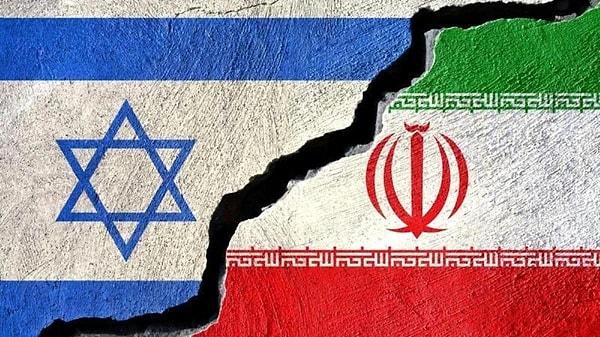
The possibility of a direct military conflict between Iran and Israel has drawn global attention to Iran's military strength. In early April, Israel carried out an attack on Iran's diplomatic mission in Damascus, killing 7 senior commanders and military personnel. In response, Iran stated that it would retaliate.
Israeli officials have indicated that they would launch counterattacks against any Iranian aggression. With these statements, it is predicted that Iran will retaliate further, potentially escalating into a wider regional conflict in the ongoing process.
Meanwhile, U.S. President Biden pledged 'strong' support for Israel in case of an Iranian attack.
Before Iran initiated the attack on Israel on Saturday night, analysts and academics speculated on possible conflict scenarios.
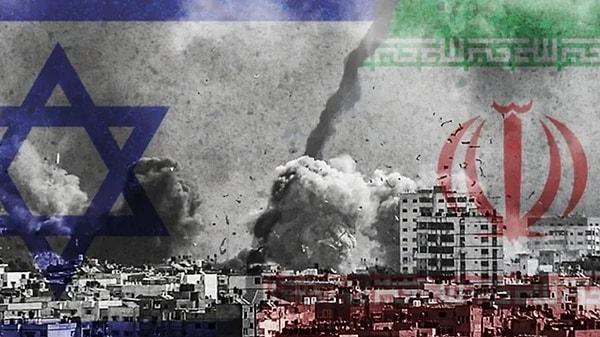
According to analysts, particularly the U.S. and Israel, have avoided direct military strikes against Iran for years because they do not want to get involved in Iran's complex military structure. Instead, Israel and Iran have engaged in a prolonged shadow war through air, sea, land, and cyber attacks. Israel has targeted Iran's military and nuclear facilities clandestinely, killing commanders and scientists.
Afshon Ostovar, an expert on national security affairs at the Naval Postgraduate School and an Iran military expert, explained why Iran has not been attacked: 'Iran's enemies are not afraid of Iran. They know that any war against Iran would be a very serious war.'
So, What Is Iran's Military Strength?

Iran is one of the largest military powers in the Middle East. The Armed Forces of the Islamic Republic of Iran are divided into two main branches: the Islamic Revolutionary Guard Corps and the Iranian Islamic Republic Army. In addition to these two forces, Iran also has various security and military organizations such as police forces, paramilitary forces, and volunteer militia (Basij). Iran's military strength relies on a large human resource base, extensive air force capabilities, a comprehensive ballistic missile program, and a significant inventory of tanks and armored vehicles.
Iran aims to be self-sufficient in military technology and has been developing indigenous weapons and equipment. As a result of these efforts, Iran possesses ballistic missiles with various ranges, domestically produced combat aircraft, and even its own-designed submarines. However, Iran's military power is not limited to its weapons and equipment alone. Through years of conflicts and wars, Iran has built an experienced and capable military cadre. Additionally, Iran's military doctrine includes employing asymmetric warfare tactics against its enemies.
An article in The New York Times examines Iran's military capabilities as follows: 👇
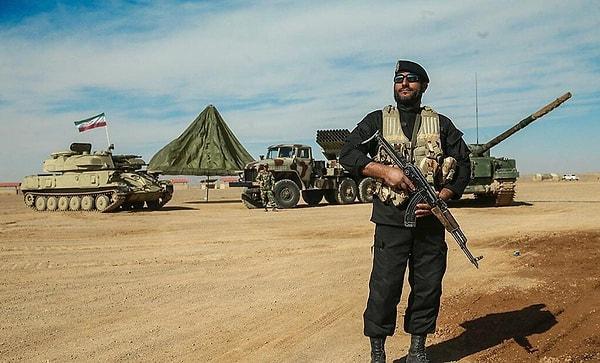
According to the latest annual assessment by an international institute, Iran's armed forces are divided into two main parts: the conventional army and the Islamic Revolutionary Guard Corps. These forces are considered one of the largest military powers in the Middle East, with more than 580,000 active personnel and approximately 200,000 trained reserve personnel.
Iran's army and the Guard Corps each have separate and active land, air, and naval forces. While the Guards undertake the task of securing Iran's borders, the General Staff of the Armed Forces coordinates all military branches and determines the overall strategy.
The Guards also manage the Quds Force, an elite unit that provides arms, training, and support to a network of proxy militias operating across the Middle East known as the 'resistance axis.' These militias include Hezbollah in Lebanon, the Houthis in Yemen, various militia groups in Syria and Iraq, and Hamas and Islamic Jihad in Gaza.
The scale and type of support and systems Iran provides to these non-state actors, including unmanned aerial vehicles, ballistic missiles, and cruise missiles, create a unique situation. Iranian expert Fabian Hinz describes this as 'truly unprecedented.'
Comparison of Iran and Israel's Military Strength:
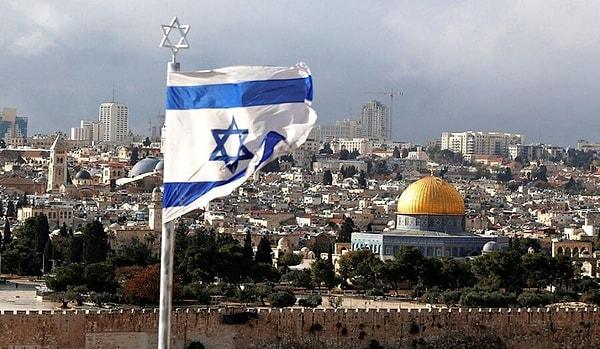
According to the 'Global Firepower' ranking, Iran ranks 14th while Israel ranks 17th!
Global Firepower is a ranking system that compares the traditional military strength of 145 countries worldwide. In the 2024 evaluations, Israel ranks 17th in global military strength, while Iran is ranked 14th. This positioning provides significant insights into the military capabilities and potentials of both countries. Israel's 17th position reflects its advancements in military technology and defense strategies, whereas Iran's 14th position reflects its military capacity and regional influence.
Evaluating Iran and Israel's military strength based on the survey conducted by Global Firepower comparing rival countries' military strengths worldwide; Israel ranks with 0.2596 points compared to Iran's 0.2269 points.
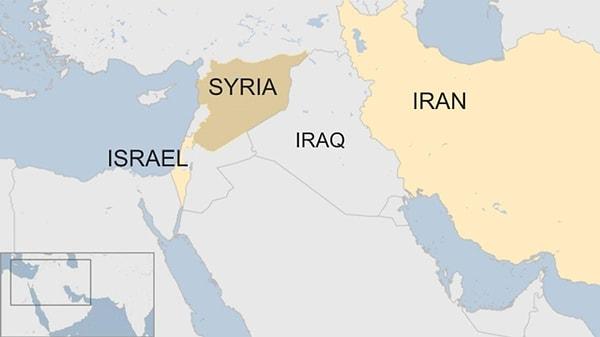
Global Firepower has been publishing a ranking that compares the military strengths of 145 different countries since 2006. This ranking evaluates each country's traditional warfare techniques on land, sea, and air based on more than 60 factors. In this ranking, where an ideal score is 0.0, the military capacities and strategies of countries are thoroughly examined.
According to the latest assessment, Israel surpassed Iran with 0.2596 points compared to Iran's 0.2269 points. The main reasons for Israel's superiority over Iran include its geographical location, larger military reserves (115,000 more personnel than Iran), larger defense budget ($14 billion more than Iran), and greater air power capacity (61 more aircraft than Iran).
So, Does Iran Have Nuclear Weapons?
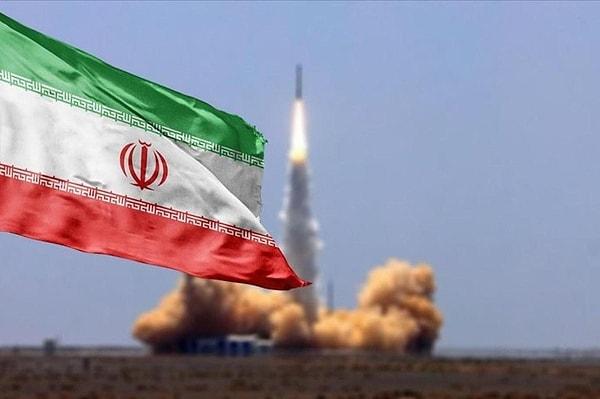
Whether Iran has the capacity to produce nuclear weapons is one of the most debated topics in the international community. Iran claims that it conducts its nuclear energy program for civilian purposes, such as energy production and medical research. However, the United States, Israel, and many European countries suspect that Iran is trying to achieve nuclear weapons capability.
The uncertainties surrounding this issue lead to continuous debates about the nature and objectives of Iran's nuclear program. Iran is a member of the International Atomic Energy Agency (IAEA) and the Nuclear Non-Proliferation Treaty (NPT), which prohibit the production of nuclear weapons. However, the IAEA and other international observers have not provided conclusive evidence that Iran's nuclear program is purely civilian.
Last year in May, Israeli Defense Minister Yoav Gallant announced that Iran had accumulated enough uranium to produce 5 nuclear bombs. However, it was not believed that Iran had enriched uranium to the 90% purity required for nuclear weapons yet.
Keşfet ile ziyaret ettiğin tüm kategorileri tek akışta gör!


Send Comment